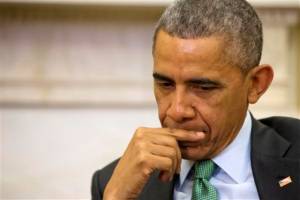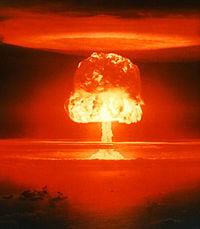Capitol Hill is the new battleground on which the struggle surrounding the nuclear deal with Iran will be waged in the coming weeks.
After pushing for the signing of a nuclear agreement between the P5+1 powers and the Islamic Republic and after rushing it through a UN Security Council (UNSC) vote, US President Barack Obama will now have to face a skeptical Congress and convince them to support the accord, which many perceive as a “bad deal” that will endanger the world.
A trio of Obama administration officials will stand stalwart behind the Iranian nuclear deal despite deep concern on Capitol Hill that Iran will try to evade nuclear inspectors and use billions from sanctions relief to further destabilize the Middle East and fuel its global terror network.
Members of the Senate Foreign Relations Committee on Thursday are to pose tough questions to Secretary of State John Kerry, Energy Secretary Ernest Moniz and Treasury Secretary Jack Lew about the deal that Congress is expected to vote on in September. The three were on Capitol Hill Wednesday for back-to-back classified briefings in the House and the Senate.
Most Democrats — except Senator Dick Durbin of Illinois, who announced his support earlier in the week — came out of the classified briefings, which were describe as tense at times, saying they were still deciding whether to support the agreement, which Congress has 60 days to review.
“My questions are about our ability to detect cheating after some of the provisions start to expire,” said Virginian Democratic Senator Tim Kaine, who sits on the committee.
“I’d be shocked if there’s more than a handful of Republican ‘yes’ votes, if there are any at all,” said Democratic Senator Chris Murphy. “But I’ve talked to most all my colleagues on the Democratic side. … I think the administration is one-by-one picking off some of the most important lingering questions from Democrats.”
Murphy, a member of the committee, said he still has questions about whether the inspection protocol will be as rigorous as the administration claims, but that if it is, he’ll support the deal.
Most Republicans exited the meetings still opposed.
Republican Congressman Tom Cotton said, “Iran is a terror-sponsoring anti-American regime…. This deal is going to give tens of billions of dollars — at a minimum — without doing anything to rein in their support for terror or their support for America’s enemies.”
Cotton and Republican Representative Mike Pompeo wrote a letter to Obama on Wednesday, protesting that the agreement includes two “side deals” that the International Atomic Energy Agency (IAEA) was negotiating separately with Iran — issues to which Congress had not been privy.

US President Barack Obama. (AP/Jacquelyn Martin)
“No serious person truly believes” that the United States faces a choice between implementing the agreement and going to war with Iran, said Republican Senate Majority Leader Mitch McConnell, rebutting statements from Obama and Kerry.
“There are tougher sanctions that will bring Iran to the table for a better deal and a good deal,” Republican Senator John Cornyn said. He noted that the deal did not require the dismantling of Tehran’s nuclear infrastructure.
Israeli Ambassador to the US Ron Dermer met privately with several House Republicans. One participant , Congressman Dave Brat, said the diplomat’s main point had been to “pay less attention to all the details” such as nuclear centrifuges and more to “who’s on the other side of the ethical debate, and that is Iran.” Tehran is opposed to the existence of Israel and has repeatedly threatened to destroy the Jewish state.
The deal does not need congressional approval to take effect, but Republicans are expected to try and sink it with legislation that would block Obama from lifting sanctions imposed by Congress. The president has vowed to veto any such bill, and it would take a two-thirds majority in each house of the Republican-controlled Congress to override him.
As a result, the prospect is for a two-month campaign by the administration to find at least 34 senators or 146 House members to prevent a veto override.
By: AP and United with Israel Staff

Sign the Petition to Stop a Nuclear Iran
The US Congress must ensure that sanctions against Iran remain in force until the nuclear threat is completely eliminated.
I strongly oppose easing sanctions before the nuclear threat from Iran has been eliminated. Allowing Iran to enrich uranium without being subject to 'anytime, anywhere' inspections is extremely dangerous and unacceptable. Iran's nuclear program must be stopped.
See our Privacy Policy
